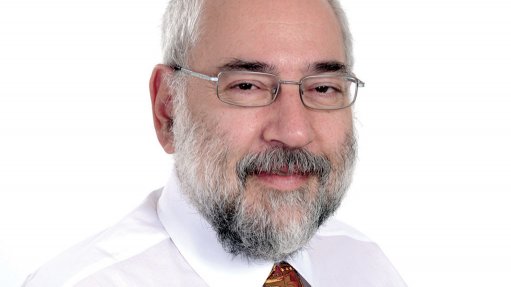
BARRY DWOLATZKY Constant learning and innovation is the engine of the Fourth Industrial Revolution
Many new technology companies will be started and incubated at the digital innovation hub, in Braamfontein, Johannesburg, which will contribute to the transformation of Johannesburg and Gauteng.
The hub – called Tshimologong, which is seTswana for ‘a place of new beginnings’ – was the culmination of the vision of University of the Witwatersrand (Wits) Joburg Centre for Software Engineering (JCSE) director Professor Barry Dwolatzky, who was given permission to use dilapidated Wits-owned buildings in 2013.
Wits vice chancellor Adam Habib, at the launch in September, praised Dwolatzky’s drive and passion to create a space where digital enterprises can be started and fostered.
“For youths, it is a place to get new skills and, for entrepreneurs, it is a place to start new ventures with support and access to systems from some of the top local and international digital companies in South Africa, including IBM, Telkom, Teraco, Cisco, Microsoft and MMI Holdings, as well as other commercial and public organisations, including the Gauteng province, the Technology Innovation Agency, Airports Company South Africa and the City of Johannesburg,” said Dwolatzky.
The hub was founded on the concept of an innovation life cycle, during which people learn new skills and develop new ideas and business models. Some of these are then commercialised, with yet more new ideas being developed, leading to further innovation and commercial ventures.
“This constant learning and innovation is the engine of the Fourth Industrial Revolution. Digital systems require hardware, software and content, and [an understanding of] how they come together in the increasingly connected world. The fuel of the digital revolution is coffee, pizza and bandwidth,” he quipped.
The hub’s reception area – a coffee shop providing free WiFi – is open to the public. Innovators and entrepreneurs pay a monthly levy of R1 500 to have access to all the facilities in the hub, including the Telkom Future Maker’s space, the Gauteng Department of e-Government’s development and validation centre, the IBM research lab, a digital innovation zone and a formal business acceleration unit.
The hub can accommodate 400 members, and there are also opportunities for entrepreneurs who meet the criteria of the hub but are unable to afford the membership fee to have the fee subsidised.
Many of the information technology company executives present at the event are former software engineering students of Dwolatzky’s, including Microsoft South Africa developer and partner experience lead Clifford de Wit.
“Digital transformation is increasingly occupying a unique space in society and computing is becoming the fabric of society. Therefore, for Microsoft, this is a very important place to be, as software is one of the fundamental drivers of the digital revolutions and the Fourth Industrial Revolution,” stated De Wit.
As one of the founding member companies of the JCSE, Microsoft wants to empower individuals in every organisation through partnerships with public-sector organisations and across industries.
“If industry comes together, we can solve many of the challenges of society, including unemployment and competitiveness. We have partnered [closely] with the JCSE, have student and business programmes, and support 3 000 startup firms that will take us with them into their industries. This is a great opportunity for us to make a holistic and sustainable impact on the country,” noted De Wit.
Tshimologong has also established strong links with other universities and international institutions, including Ryerson University, in Canada, and the Bombay Stock Exchange Institute, in Mumbai. The hub aims to grow its international partnerships in future, concluded Dwolatzky.